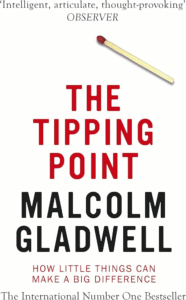The Rise of Bio-Hacking for the Average Person: Fact vs. Fiction
The concept of “bio-hacking” has surged into public consciousness, promising individuals the power to optimize their own biology for enhanced performance, longevity, and overall well-being. From wearable trackers monitoring sleep patterns to futuristic discussions of smart implants and genetic modifications, the term encompasses a vast spectrum of practices. For the average person, navigating this landscape of innovation, hype, and genuine scientific advancement can be challenging. Distinguishing fact from fiction is crucial for responsible engagement with the burgeoning world of bio-hacking.

Accessible Bio-Hacking: Everyday Practices and Wearables
At its core, bio-hacking is about making intentional, often self-experimental, changes to one’s body, diet, and lifestyle to improve physical and mental function. On one end of the spectrum, it includes accessible and largely proven strategies that many already practice: optimizing sleep hygiene, engaging in regular exercise, adopting mindful eating habits like intermittent fasting, or utilizing cold exposure therapy (like cold showers or ice baths) for purported metabolic boosts and reduced inflammation. Wearable technology, such as smartwatches and fitness trackers, falls squarely into this category. These devices provide invaluable data on heart rate, sleep cycles, activity levels, and more, empowering individuals to track their progress and make data-driven adjustments to their routines. This “quantified self” approach is backed by science and, when used responsibly, can genuinely lead to improved health outcomes by fostering awareness and motivation.
Venturing Beyond: Nootropics and Experimental Therapies
However, the definition of bio-hacking quickly expands into more experimental and, at times, ethically ambiguous territory. Nootropics, or “smart drugs,” are often touted for cognitive enhancement, ranging from widely accepted substances like caffeine to unregulated compounds with uncertain long-term effects. The promise of “optimizing” brain function through supplements requires careful scrutiny, as many claims lack rigorous scientific backing and unregulated products can pose significant health risks. Similarly, advanced regenerative therapies, such as stem cell treatments, while showing promise in clinical settings, are often promoted by some bio-hackers outside of regulated medical environments, raising serious safety concerns due to a lack of oversight and standardized protocols.
The Frontier of Bio-Hacking: Implants and Genetic Modification
The most controversial frontiers of bio-hacking involve invasive procedures and genetic manipulation. Discussions of smart implants, such as RFID chips for seamless interaction with technology or even more complex embedded devices designed to monitor or augment bodily functions, exist primarily in the realm of advanced research and niche communities. While fascinating, the safety, security, and long-term biological compatibility of such implants are still largely unknown for widespread application. Even more contentious is the idea of “DIY gene editing” using tools like CRISPR. While gene-editing technology holds immense potential for treating genetic diseases, self-experimentation with such powerful and precise tools, without expert knowledge, ethical review, and sterile environments, is extremely dangerous and irresponsible, carrying risks of unintended mutations, severe health consequences, and even environmental contamination.
Responsible Engagement: A Practical Approach
For the average person looking to responsibly engage with bio-hacking, the key lies in a pragmatic and evidence-based approach. Start with the “low-hanging fruit” – fundamental lifestyle changes that are widely recognized as beneficial. Prioritize quality sleep, balanced nutrition, consistent physical activity, and stress management. Utilize wearables as tools for self-monitoring and insight, not as a replacement for professional medical advice. Before considering any supplements or more advanced interventions, consult with qualified healthcare professionals, such as doctors, nutritionists, or certified trainers. Be wary of hyperbolic claims, secret ingredients, and products promising guaranteed results. Always seek information from reputable sources, such as medical organizations, academic institutions, and peer-reviewed scientific studies, and understand that individual results can vary greatly.
Conclusion: Balancing Promise with Prudence
In conclusion, the rise of bio-hacking presents an exciting vision of personalized health and human optimization. For the average person, readily available tools like wearables and well-established lifestyle “hacks” offer tangible benefits rooted in scientific understanding. However, the allure of quick fixes and futuristic enhancements must be tempered with a healthy dose of skepticism and a strong commitment to responsible practices. Distinguishing between scientifically supported advancements and unsubstantiated claims is paramount to safely and effectively navigating the evolving landscape of bio-hacking, ensuring that the pursuit of optimization truly enhances, rather than jeopardizes, well-being.











